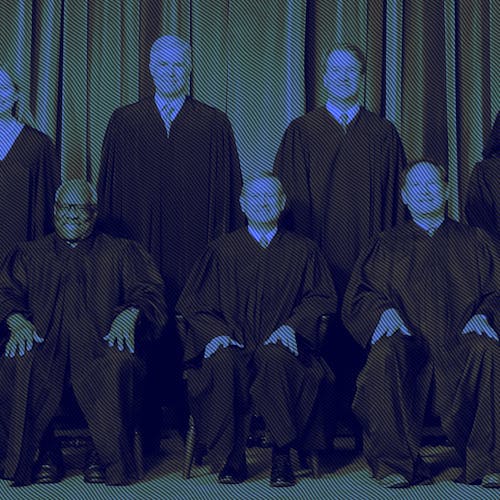EDITORIAL: Police abuses are systemic, not just 'mistakes'
The recent death of Daunte Wright is a reminder of the reforms police departments across the country absolutely need

Daunte Wright was only 20 years old. He was our age, he had a family: parents, a partner, a child. In the minutes before he was fatally shot during a traffic stop, Wright called his mother to ask her what he should do. Her advice was not enough to save him. Police insist that the offending officer made a mistake, that she pulled her gun when she meant to pull her taser.
Wright’s family will grieve and suffer regardless. Violence of this caliber is not something to be simply forgiven, even if the officer was under high levels of stress, even if it was an honest mistake. As an armed police officer with the ability to kill on a whim, you do not get to make these kinds of mistakes.
The callousness and utter contempt with which police treat Black and Brown communities is a result of decades of racism from cops toward overpoliced communities, exacerbated by poor police training and vetting.
Whether the death of Wright was murder or manslaughter should not be at the forefront of the conversation. At this point, there have been so many “mistakes” made by police that trying to figure out the motives behind these murders distract from the key issue: police are over-armed and under-trained.
The amount of serious, life-threatening mistakes that have been made by police departments across the country is not only a national embarrassment, but also a source of heartbreak for countless families. Most of the cases of police "blunders" turned brutality do not even make it to the mainstream media.
In February 2019, nine male police officers broke into Anjanette Young’s home with military-grade weapons in the middle of the night and handcuffed her while she was naked, only to realize they had targeted the wrong home. And despite blowing Young’s door to pieces, police officers were not responsible for the property damage.
In May 2019, Antone Austin, a Black man, was wrongly arrested in Los Angeles by police who were actually looking for a white perpetrator. Austin was later charged with resisting arrest and his girlfriend with felony lynching, despite both being the victims in this case. They are still embroiled in a legal battle despite being the targets of violence, and again, not the perpetrators.
In 2014, a child was burned in his crib by a flash grenade as a result of a drug raid that did not result in the arrest of the perpetrator. No officer was charged in this case.
These are just a few examples of non-lethal police blunders. In the first three months of 2021 alone, 213 individuals were gunned down by police. Now, Wright joins the list of those victimized by police violence and incompetence.
One cause of these incidents is chronic over-arming and under-training. Police academy training lasts less than one year and does not usually require an undergraduate degree despite research showing that an undergraduate degree makes cops less likely to use violence and more likely to work with the communities they serve.
Police departments across the country are not seeing an increase in training, but are constantly being militarized, leading to departments that are armed to the teeth but have no de-escalation knowledge, mental health support or accountability.
The elephant in the room is of course bias and racism among police officers. Cops over-police Black and Brown neighborhoods, bringing with them preconceived notions and dangerous stereotypes. While bias training is a good thing, its impact is unfortunately limited.
What we need is more extensive police training, higher standards for cops who deal with violent and high-risk situations and a much greater understanding of de-escalation techniques.
On top of that, funding should be diverted away from military-grade weaponry and towards programs that are able to better serve the public, such as social programs, mental health resources and trained crisis intervention specialists.
Departments across the country should be engaging in a practices focused on benefiting the public. One initiative called community policing, made famous by the work of Camden Police Chief John Scott Thompson, emphasizes the role of officers as individuals responsible for serving the community.
Thompson rebuilt the Camden police department from the ground up, and while there is still a lot of work to be done, the work that was done to reintroduce the police force to the citizens of Camden was groundbreaking. Since Thompson's reforms, "the number of homicides in Camden has dropped significantly since 2012, when the city recorded 67."
As students, it is our job to listen to the demands and issues raised by the Black Lives Matter movement and other racial justice movements, keep ourselves informed and vote for people who support police reform. Legislation like Assembly Bill No. A5301 that calls for the release of law enforcement disciplinary records is key to addressing police brutality.
Support Black activists, support the families of those killed and push for the reform that needs to happen. It is an uphill battle, and change will come slowly, but we cannot be desensitized to this kind of violence and we cannot forget the names of those whose lives have been lost.
The Daily Targum's editorials represent the views of the majority of the 153rd editorial board. Columns, cartoons and letters do not necessarily reflect the views of the Targum Publishing Company or its staff.



